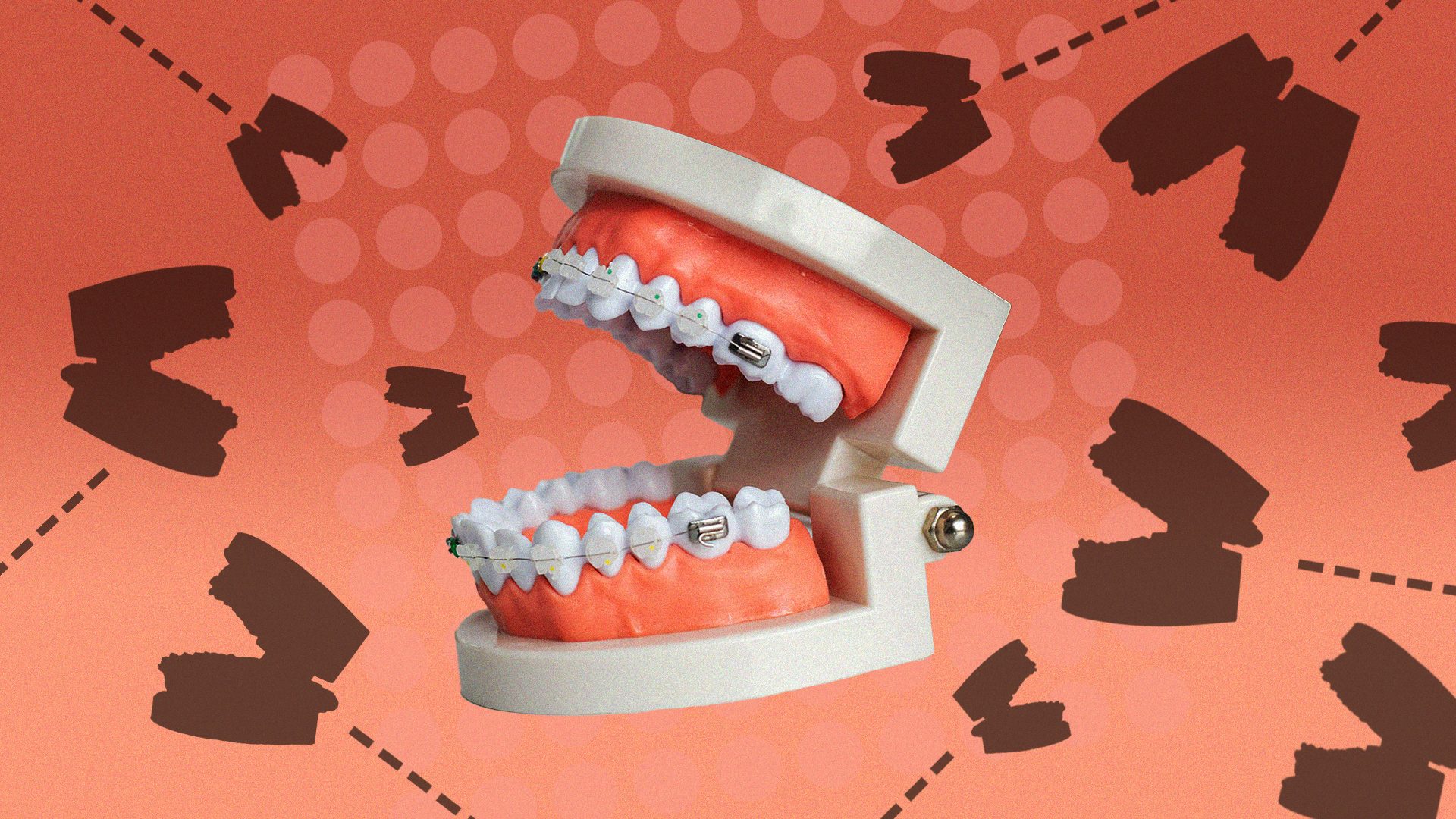What is the controversy about?
I probably don’t need to explain why people are kicking up a fuss about the DentalSlim Diet Control (such a catchy name, that).
For one, it looks like something you’d find in a serial killer’s basement rather than a dentist’s office, and the extreme restriction of jaw movement is disturbing at face value. This device will affect your ability to speak properly and makes nearly all normal foods a no-go.
It could be argued that these intense, physically debilitating inventions are addressing weight issues at a surface level, rather than tackling the mental struggles that lead to extreme eating disorders.
Each case is unique, of course, but forcing an individual to not eat properly rather than allowing them to make a conscious choice through self-discipline seems short sighted and tone deaf, given the current climate around obesity.
Twitter was quick to throw hands at the University of Otago who announced the creation of the DentalSlim Diet Control a few days ago. Some described it as a ‘torture device’, others using words such as ‘evil’, ‘hateful’, and ‘disturbing’.
The university has since tried to further justify the tool, describing it as a ‘temporary’ solution to help clients with weight loss before surgery. No amount of explaining will make it look less like a costume reject from The Terminator, though.
How does this affect the diet industry as a whole?
While this won’t necessarily shake up the diet industry, it does highlight problems with the way we view obesity and eating issues.
Often we see professional or ‘pragmatic’ solutions to weight gain that fail to examine the societal pressures and educational problems that cause obesity or body dysmorphia. In the UK, for example, the government is attempting to introduce a monthly system in which children are weighed regularly in order to monitor risks of being overweight.
That may sound great in theory, but in the real world this will only contribute to body image issues, overly strict diet control, and damage relationships with food. More needs to be done at a universal, societal level to stop obesity rather than clamping our jaws shut.
Convenience food remains a cheap and easy way to feed families, McDonalds and Coca Cola still sponsor the Olympics, and takeaways continue to enjoy unprecedented popularity with services such as UberEats and Deliveroo.
These are areas that need to be looked at and addressed first. Anyone who’s watched Love Island this year will have noticed the insanely frequent advertisements for junk foods. What chance does a parent have at keeping their children healthy if McDonalds is introducing ‘football schemes’ to get around the advertisement block for minors?
It is frustrating to see academics focus their efforts on physical restraints, rather than calling for better systematic standards and cultural changes.
We should call out innovations like this out as much as possible – before a creepy American doctor wires our jaws and makes it impossible to speak up.




















